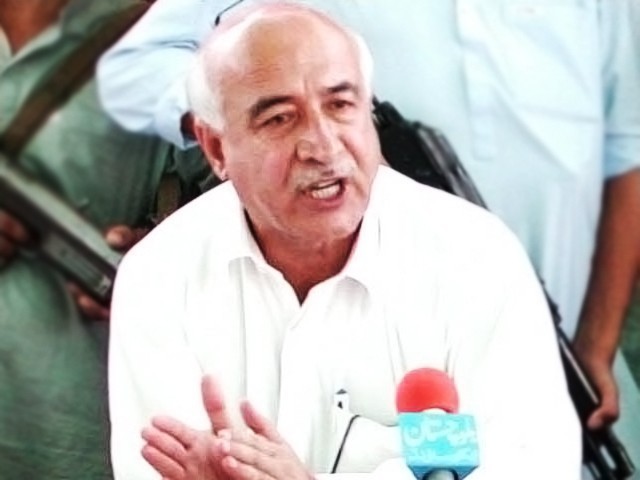
“I ask my team to take every necessary step to make Balochistan a polio free province,” the chief minister said during a high level meeting with the State Minister for Health Services Saira Afzal Tarar, Focal Person to Prime Minister on polio eradication Initiatives Ayesha Raza Farooq, country head of UNICEF, WHO, BMGF and NSTOP officers at the Chief Minister’s secretariat on Thursday.
“I will make provincial minister for health accountable if he fails to improve the performance and make Balochistan polio free,” Baloch said.
This was the first high level meeting chaired by the Chief Minister for specifically discussing initiatives on polio in Balochistan. Provincial Minister for Health Rehmat Saleh Baloch, Information Minister Raheem Ziaratwal, Chief Secretary Saif Ur Rehman Chatta, Inspector General Police Balochistan Mohammad Almish, Secretary Health Noor Ul Haq Baloch, Secretary Home and Tribal Affairs Akbar Hussain Durrani, Secretary Finance, DIG Quetta, representatives of Southern Command, provincial officials of WHO, UNICEF and other partner agencies were also present.
The meeting was told that there are 12 high polio-risk districts in Pakistan, three of which are in Balochistan including Quetta, Pishin and Kila Abdullah. More than 75 per cent cases of polio in the province are from the Quetta block.
“There are challenges in health and education sectors and my government’s prime focus is on these sectors,” Baloch said. “Those who perform better will be encouraged while those whose performance remains poor will face legal or departmental action.”
Tarar said that there were some serious security issues which have created hurdles in launching a successful anti-polio campaign. “There is a need more commitment from the Balochistan government as it makes deputy commissioners of high risk areas responsible to implement the micro plans and provide adequate security.”
Clarifying that while no fingers were being pointed, Tarar said that everyone is equally responsible.
“There is no dearth of resources and technical assistance,” she told the chief minister. “All we need is to implement the emergency action plan envisaged by federal government.”
Chief Secretary Balochistan Saifullah Chatta, however, said that security was not an issue. But, he assured that every suggestion would be taken into the consideration.
Farooq, requested the chief minister and the chief secretary to ensure that Provincial Task Force meetings, chaired by the chief secretary, are held regularly, with SIA review meetings to be held monthly before each campaign for Tier I, II & III districts (eight districts only).
“Adequate and timely provision of security in all districts need to be ensured for all upcoming anti-polio campaigns.”
Health Minister Rehmat Saleh Baloch said that he will “present himself for accountability” for implementing all instructions.
The provincial minister added that their performance will also be improved in upcoming campaigns.
Meanwhile, secretary health gave a presentation about the state of anti-polio campaigns and recent cases in Balochistan. Baloch was shocked to learn that there were more than 90 cases of polio in Pakistan.
“In 2014, 19 out of 25 cases were from Quetta block. In 2015, three out of four cases are from same block,” the meeting was informed.
UNICEF head said that women workers could play a role in eradicating the poliovirus, in addition to a slew of steps needed to make campaigning effective. “There is a need for supervision, timely payment to frontline workers and providing them enough security

















COMMENTS
Comments are moderated and generally will be posted if they are on-topic and not abusive.
For more information, please see our Comments FAQ